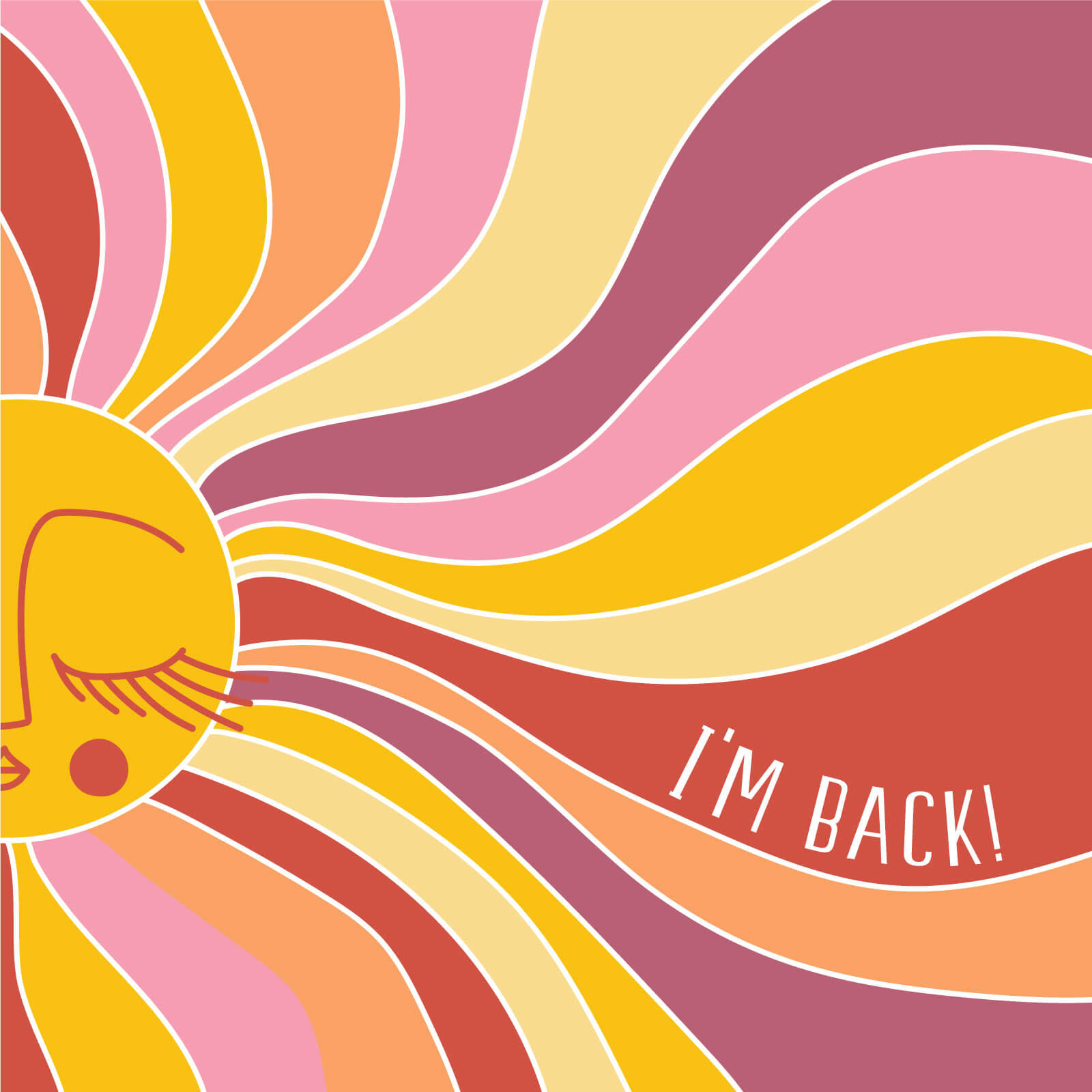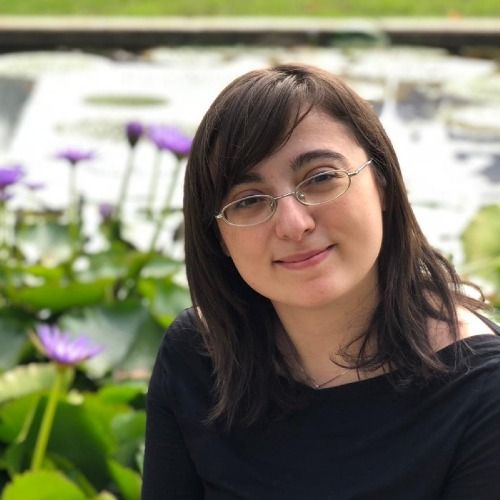Episode 3
Finding Balance with Andrew GottWorth
In this episode, Serena is joined by Andrew GottWorth, an advocate for the International OCD Foundation and leader of the Berlin OCD work. Together, they discuss the journey of returning to work after facing mental health challenges. Andrew shares his personal experiences with OCD, depression, anxiety, and ADHD, revealing the importance of a supportive environment and the power of taking things slowly. The conversation delves into redefining success, accepting limitations, and finding joy in new paths. Tune in for an insightful discussion aimed at providing support and encouragement for those overcoming similar struggles.
- Andrew's Linkedin
Transcript
How can you celebrate where that already exists?
Speaker:How can you build that more into your life in the future without necessarily
Speaker:having those goals you had before?
Speaker:Accept the reality for what it is and that we're not trapped into one story.
Speaker:Welcome to, I'm Back today.
Speaker:I, I'm really happy to have with me Andrew Gottworth an advocate
Speaker:for international OCD Foundation.
Speaker:He runs the Berlin OCD work.
Speaker:An international networking and advocacy group.
Speaker:Thank you so much, Andrew, for being here with me.
Speaker:I'm really excited for this episode and I want to start with the
Speaker:question, what means I'm back for you?
Speaker:Yes.
Speaker:Thank you so much for having me.
Speaker:I love these opportunities to talk about being back and
Speaker:bouncing back from something.
Speaker:So, uh, for me, uh, mine is coming back from mental health struggles.
Speaker:We can talk a bit about a couple stages in my life where I've had to do this.
Speaker:A few years ago, 2018 or so, I stopped working due to mental health
Speaker:and I managed, thankfully to find excellent treatment and then slowly.
Speaker:Worked my way back into working and trying to work while managing mental health.
Speaker:We can get into talking about the lessons I've learned along the way.
Speaker:One word resonated with me.
Speaker:That is slowly.
Speaker:Yeah, yeah, yeah,
Speaker:because sometimes we have the impression, oh, we need to go back immediately,
Speaker:as soon as possible, et cetera.
Speaker:I'm wondering, what do you think about the power of this word slowly
Speaker:and also allowing yourself the time?
Speaker:Yeah, absolutely.
Speaker:And maybe first I can provide a little more context.
Speaker:So I was diagnosed with Obsessive Compulsive Disorder back around
Speaker:2018, but before that, I had been working full-time at an organization
Speaker:that did volunteerism and service.
Speaker:I went from full-time to part-time.
Speaker:Tried to keep working and was still really struggling, and I didn't know why.
Speaker:And so then I stopped working.
Speaker:Thankfully got treatment for OCD, which is exposure response prevention therapy,
Speaker:was able to get back into work, but you and I chatted a bit before that.
Speaker:I tried going back with substitute teaching and I realized.
Speaker:That really wasn't for me as I came home crying most days and was really
Speaker:struggling, but talked to my therapist, talked to my parents, talked to my
Speaker:wife, who are all very supportive.
Speaker:So then tried something else.
Speaker:So I think part of that slowly concept is you don't have to go with
Speaker:the first thing and latch onto it.
Speaker:You know, you can try something, step back, try something,
Speaker:step back if you need to.
Speaker:So thankfully, my second one was.
Speaker:Part-time work doing adult education, teaching English as a second language.
Speaker:And so I was very lucky to find supportive supervisors and colleagues there.
Speaker:But yeah, I started part-time, so, you know, before I went from full-time to
Speaker:part-time to not working, to therapy, to trying something didn't work.
Speaker:Then part-time and then after a few months, uh, accepted a position to
Speaker:be full-time, thankfully had again.
Speaker:Supervisors who were flexible and patient and you know, if I had to go to therapy
Speaker:or psychiatry or if I was just having enough day and can maybe work remote.
Speaker:So yeah, I didn't go fully from not working to 40 hour work
Speaker:week in the office every day.
Speaker:Um, I think that would be unrealistic as a way to come back right away.
Speaker:You mentioned many times the supportive environment.
Speaker:People were supportive for you, how important it is having someone that
Speaker:is there for you and how difficult it is to see these supportive
Speaker:people that maybe are there, but.
Speaker:Not always.
Speaker:It's easy to see them.
Speaker:I think it's important for anyone, especially for maybe invisible
Speaker:struggles, so whether that's mental health or a gut disorder or even being
Speaker:a parent can be invisible at times.
Speaker:'cause if you don't talk about it, you don't know where.
Speaker:Also, we should absolutely be supportive and inclusive for those
Speaker:in wheelchairs and those visual impairments, hearing impairments in
Speaker:an environment that is understanding.
Speaker:Of, there are other things going on in your life, so it's not, you
Speaker:have to be here at nine every day.
Speaker:It's like, okay, but I have to drop my kid off at school.
Speaker:If you're a parent or, well, actually with my OCDI really struggle in the morning
Speaker:to leave the house and get there on time.
Speaker:Can we talk about a flexible, you know, get in between nine
Speaker:and nine 30 or something?
Speaker:And as we also talked before, you know, each person can
Speaker:disclose as much as they want to.
Speaker:You have to build that comfort level.
Speaker:I'm at a stage in my life where I'm quite comfortable
Speaker:disclosing OCD depression, A DHD.
Speaker:That onus should not be on the person that it would be great if supervisors
Speaker:and leadership have a culture that is supportive of anyone regardless
Speaker:of what they choose to share.
Speaker:As you said, flexibility can be applicable to almost everyone.
Speaker:I would say without even the need of asking why or to
Speaker:understand the reason behind that.
Speaker:I really love.
Speaker:What you said about the invisibility because it's so hard to talk about
Speaker:something that is not perceived there as real because it's not visible.
Speaker:Yeah.
Speaker:That's difficult.
Speaker:And you know, you don't want to have to be in the position or any employee
Speaker:student to be in the position to have to defend their reality, to have to try to
Speaker:explain to colleagues in leadership like.
Speaker:No, this is real.
Speaker:You don't have to do this.
Speaker:I think, um, maybe a metaphor is like allergies and, you know, I have a cousin
Speaker:who's severely allergic to peanuts and you hear sometimes maybe playfully,
Speaker:but maybe also real online, that like, oh, peanut allergies aren't real.
Speaker:That's made up.
Speaker:It's like, no, no, it's real.
Speaker:Like he's gone to the hospital.
Speaker:It's very scary.
Speaker:And same thing with.
Speaker:With OCD or with other invisible disorders where it can be seen as
Speaker:like they're just particular or they just want attention or they're faking
Speaker:it just to get out of this meeting.
Speaker:No, it's real.
Speaker:You know, I have plenty of doctor's visits and lots of hours to prove
Speaker:it, but it would be great if every place didn't force you to prove
Speaker:it and verify it all the time.
Speaker:I've been very fortunate in the past few years that almost all of my.
Speaker:Supervisors in the past few years and have been very supportive of that,
Speaker:and I wish that for everyone, 'cause I know that's not true for everyone.
Speaker:Was it difficult for you to reinvent your career or to accept that your
Speaker:professional identity needed a change?
Speaker:That's a great question and it's talked about a lot in the OCD community,
Speaker:even though I personally have been diagnosed with depression, anxiety,
Speaker:OCD and A DHD, I have the big four.
Speaker:I find a lot of resources for depression, a lot of resources
Speaker:for anxiety and a lot for A DHD, although there could always be more.
Speaker:But the OCD community is where I've really found.
Speaker:A deep community as we're trying to figure it out and learn.
Speaker:And there are a lot of people who have a story similar to mine that they either
Speaker:dropped out of school, they dropped out of working, they ended up being sort of
Speaker:shut into their homes for a long time.
Speaker:And even after treatment, it is still difficult to let go of the
Speaker:person you thought you could be.
Speaker:And we talk sometimes about grieving that alternate future.
Speaker:So I grew up, it's always a bit embarrassing to brag,
Speaker:but I was valedictorian.
Speaker:I had all A's, when I was a kid, the mayor of my town said, you'll be mayor someday.
Speaker:And you know, and that was my goal.
Speaker:I wanted to be in leadership and be something big.
Speaker:And I'm realizing now, like letting go of that.
Speaker:I don't wanna be on leadership.
Speaker:I don't want to be a CEO, I don't wanna be a president.
Speaker:I have improved a lot.
Speaker:Um, but my days are up and down.
Speaker:And realistically, and not to say in 10, 20 years I might recover more, but part
Speaker:of radical acceptance, which is found in very different therapy models, DBTC, BT,
Speaker:others, but radical acceptance is that.
Speaker:I have a different life now and it can be meaningful and it can be happy, but
Speaker:I can grieve the loss of, oh yeah, I was gonna be a, you know, president
Speaker:of a university or mayor of a town.
Speaker:And no, I'm a student experience coordinator.
Speaker:I am a volunteer advocate.
Speaker:I do other things that bring me
Speaker:joy.
Speaker:And how can you rewrite your story?
Speaker:That's a good question.
Speaker:I think I'm still learning and.
Speaker:Perfectionism.
Speaker:Which can exist inside and outside of OCD.
Speaker:Within OCD, it can be called just right OCD.
Speaker:And so I have to have everything just right and this vision of myself being just
Speaker:right and you know, so of course easier to tell others this than myself, but,
Speaker:you know, look at the things in your life that bring you joy, that bring you peace,
Speaker:that bring you warmth and community.
Speaker:How can you celebrate where that already exists?
Speaker:How can you build that more into your life in the future?
Speaker:Without necessarily having those goals you had before, you know, whether it's
Speaker:a title or a salary or a book deal.
Speaker:I don't know if you have goals of a million listeners to the podcast,
Speaker:you know, but being able to.
Speaker:Accept the reality for what it is and, and that we're not trapped into one story.
Speaker:I have had this comic I read online once a long time ago.
Speaker:I think it's made by Saturday morning breakfast cereal, but it talks
Speaker:about, it takes, I don't know, like seven years to master something.
Speaker:And really that's a lifetime, you know?
Speaker:And if we think we will all live close to a hundred, maybe then
Speaker:the comic, it says 11 lifetimes.
Speaker:It's okay if.
Speaker:That lifetime I had imagined seven years ago is different now, and it's
Speaker:okay if in seven years from now I. I dunno, take up surfing or something.
Speaker:I don't know.
Speaker:But our identity isn't static.
Speaker:And for me it took also a lot of work in redefining what success meant for
Speaker:me on a professional level because we are in a society that is telling
Speaker:you you need to become a leader, a manager, grow your career, et cetera.
Speaker:And I had to rethink.
Speaker:Success in a different way for me.
Speaker:How was for you?
Speaker:Yeah, I'm happy to share, but I wanna hear also you, so how did
Speaker:that definition change for you?
Speaker:It was linked to two factors.
Speaker:The first one to accept that my head and has some limitation.
Speaker:So if I have to live a lifestyle that is really stressful, demanding,
Speaker:this can have a deep impact on my wellbeing and my health.
Speaker:So the first thing for me was to accept my current limitation, but link it to that.
Speaker:Also to reflect on the person I am and what is meaningful for me.
Speaker:And I discovered after a lot of work that actually being a leader, be a manager,
Speaker:grow your career, having a lot of money is not what is meaningful for me.
Speaker:It was hard to accept because of course, society saying that you need
Speaker:to do something else, but now I'm more.
Speaker:Aligned with the person I am before.
Speaker:Yeah.
Speaker:I like that a lot.
Speaker:Yeah, I think that's true for me as well, is letting go of some of that success and
Speaker:things being, I was trying to think of a metaphor, like picking and choosing when
Speaker:to strive for a hundred percent complete.
Speaker:If I'm building a bridge across a river, yeah, we want that to be a
Speaker:hundred percent complete, but maybe I only make, I dunno, 80% of the
Speaker:number of cookies I wanted to make.
Speaker:Well, that's still great.
Speaker:Everybody gets cookies, you know, maybe they got slightly less the amount
Speaker:they wanted, but that's totally fine.
Speaker:And so, not to say that there aren't areas where I put in full efforts, but
Speaker:it was draining me, uh, trying to give this a plus effort and the American
Speaker:grading system all the time, I would then get burnt out and exhausted.
Speaker:And there's this great OCD advocate named Kimberly Quinlan, and she suggests giving
Speaker:B minus effort, give B minus effort and.
Speaker:It's great.
Speaker:It's not easy sometimes to like go, it's okay.
Speaker:It's good enough.
Speaker:It's good enough.
Speaker:And so I think to answer your initial question, what does
Speaker:redefining success look like?
Speaker:One is being able to give B minus effort and be okay with that.
Speaker:And then the other is exactly what you said, buying things
Speaker:that more align with my values.
Speaker:So am I kind and compassionate to my wife, my friends, my colleagues?
Speaker:Am I supportive?
Speaker:Am I helping the environment?
Speaker:Am I helping my community?
Speaker:Yeah, maybe I haven't written the books I wanna write, or, you know,
Speaker:created the, or gotten the job, the job title that I had initially dreamed of.
Speaker:But yeah, changing that mindset has been very helpful.
Speaker:And this reminds me of one time that my doctor said to me, your health
Speaker:is at 70% and it's going to be like this if everything goes well.
Speaker:So why are you pushing yourself out 120%?
Speaker:Uh, I think 70% is okay also for pushing yourself.
Speaker:Yeah.
Speaker:And this was so powerful for me.
Speaker:Yeah.
Speaker:Yeah.
Speaker:Percept that 70%.
Speaker:It's enough.
Speaker:It's okay.
Speaker:I can have a beautiful life and I can perform well at work.
Speaker:70%.
Speaker:Absolutely.
Speaker:Absolutely.
Speaker:Yeah.
Speaker:I have two thoughts there.
Speaker:I don't know if I can maintain both, but one was, I think it
Speaker:was on a podcast, but probably something I saw on Instagram reel.
Speaker:But this elite track athlete talking about having a a day that wasn't
Speaker:great, and her coach said, you don't want every day to be great.
Speaker:33% of the time, you should be above average.
Speaker:33% of the time you should be average, and 33% of the time should be below average.
Speaker:That's just the way training goes.
Speaker:And yeah, if I'm trying to be above average every day, well then it's
Speaker:not maintainable, it's not that.
Speaker:I think just getting back to that idea of traditional success as maybe we saw in TV
Speaker:and books and society of that means having six figures, you know, being a VP or
Speaker:president and you know, getting book deals and you know, depending on your industry.
Speaker:It's not for everyone, and it doesn't have to be for everyone.
Speaker:Absolutely.
Speaker:Do you have any suggestion for people who are coming back to work
Speaker:right now with similar experiences?
Speaker:Yeah.
Speaker:Yeah.
Speaker:I think some we've sort of hinted at or said, take your time, go slow rest.
Speaker:It is better to do a little rest.
Speaker:Do a little rest, rather than go full force and get burnt out again.
Speaker:And that's really unsustainable, particularly for those with.
Speaker:Mental health disorders, and especially with OCD, continue seeing a therapist
Speaker:and therapy can be like dating.
Speaker:Uh, you know, maybe you don't have a great relationship with one.
Speaker:It's okay to move on and date another therapist.
Speaker:Follow best practices.
Speaker:So again, for OCD, it's exposure, response prevention.
Speaker:So you sort of, you're exposed to things that your brain says are distressing.
Speaker:That maybe the rest of society doesn't say it's distressing and you learn
Speaker:to change your response to that to prevent your normal response.
Speaker:So it's important to do your therapy homework as well as a supplement to that.
Speaker:And for anyone, I think some mindfulness techniques are very helpful.
Speaker:It doesn't have to be meditation, it can be other sorts of acceptance and
Speaker:mindfulness and breathing or you know, whatever you choose, walking, yoga.
Speaker:All of that, but we're acknowledging all, whether it's mental health,
Speaker:physical health, a child, whatever, you're coming back into work
Speaker:with, added obstacles, right?
Speaker:It's not the status quo for the average person.
Speaker:It's also not the status quo for your past self, perhaps that you're already going
Speaker:to have more stressors, more challenges.
Speaker:So to give yourself grace and patience and self-compassion,
Speaker:practice some mindfulness.
Speaker:Practice your breaks.
Speaker:I can make the transition a lot easier.
Speaker:Thank you so much, Andrew, for this conversation.
Speaker:Thank you.
Speaker:I'm really glad you're doing this and trying to help people cross all walks
Speaker:of life, you know, get back into work and redefining success and all that.
Speaker:I appreciate it.
Speaker:Thank you so much for listening to this conversation.
Speaker:Please feel free to share it to people who needs to hear these words
Speaker:and please take care of yourself.
Speaker:You can find the podcast on all the platform or on I'm back.work.


